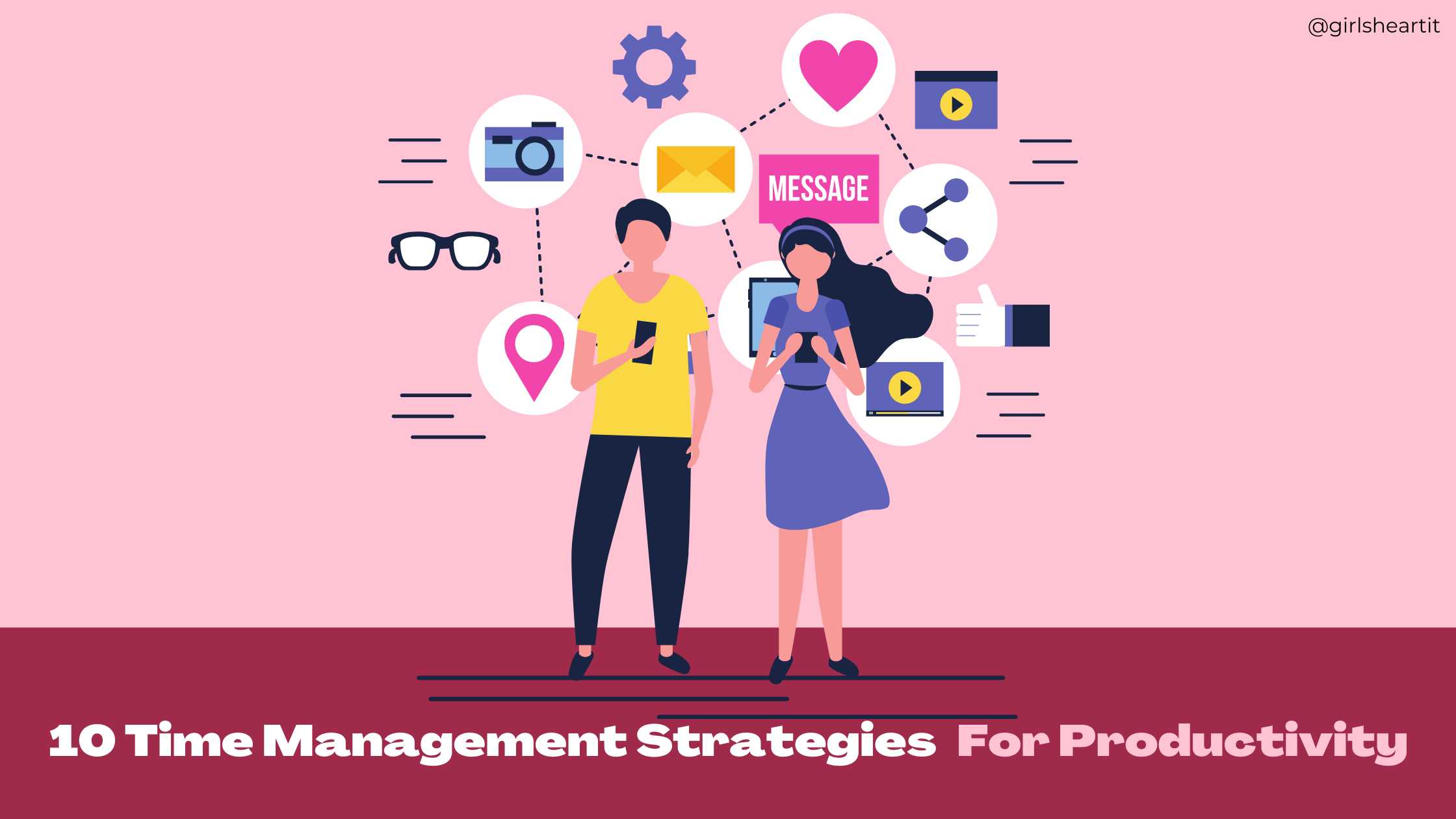In today's
fast-paced world, time is one of our most valuable resources. Effective time
management can help us achieve our goals, reduce stress, and increase
productivity. In this article, we will discuss 10 simple and best time
management strategies that can help you boost your productivity today.
Prioritization
The most
important time management strategy is prioritization. By determining what tasks
are most important, you can be sure that you are going to use your time
effectively. First things first, make a To-Do list of the tasks you need to
complete. Then, assign each task a priority level. Shift your focus on
completing the most important tasks first, and leave less important tasks for
later in the day. By prioritizing your tasks, you will ensure that you can
achieve your goals.
Time Blocking
Time blocking
is another effective time management strategy. This involves scheduling blocks
of time for specific tasks rather than trying to multitask or work on multiple
tasks simultaneously. For example, schedule a block of time for answering
emails and another for working on a specific project. Focusing on single task
at a time means getting more productive and efficient.
Minimizing Distractions
Distractions
can be a major productivity killer. To minimize distractions, start by
identifying the sources of distraction in your work environment. Common sources
of distraction include social media, email notifications, and noisy coworkers.
Once you have identified the sources of distraction, please take steps to
minimize or eliminate them. For example, put your phone on DND mode, or you can
also use noise-canceling headphones to block out noise.
Avoiding Multitasking
Contrary to
popular belief, multitasking is not an effective time management strategy. When
we try to multitask, we are less productive and less efficient. Instead of
multitasking, focus on a single task at a time. Prioritize your tasks, and focus
on completing the single task before moving on to the next.
The 80/20 Rule
The 80/20
rule, also known as the Pareto principle, is a time management strategy that
can help you prioritize your tasks more effectively. The rule states that 20%
of your efforts make up 80% of your results. By identifying 20% of your most
productive efforts, you can focus on those tasks and achieve better results in
less time.
Time Audit
A time audit
is a useful tool for identifying areas of wasted time in your day. To conduct a
time audit, track how you spend your time for a few days. You will identify the
areas where you spend too much time, such as social media or email. Once you
identify these areas, you can take steps to reduce the time you waste on them.
Taking Breaks and Rest
Taking breaks
and resting is important for maintaining productivity over the long term. Taking
breaks throughout the day can allow your brain to recharge and avoid burnout.
Try to schedule breaks every 90 minutes to two hours. During your break, move
your butt from your chair, stretch, or do something else that helps you relax
and recharge.
Saying "No"
Learning to
say "no" is an important time management strategy. When we say
"yes" to every request, we can quickly become overwhelmed and
overworked. To avoid this, set boundaries in your life and learn to say
"no" to things that are not a priority. Communicate your boundaries
clearly and politely, and explain why you cannot accommodate the request.
Automation and Delegation
Automation
and delegation are two time management strategies that can be your life saver
and will also save your time and be more productive. Look for tasks that can be
automated, such as scheduling social media posts or sending automatic email
replies. For tasks that cannot be automated, consider delegating them to
someone else. It will free up your time, and you can focus on more important
tasks.
Mindfulness and Self-Care
Finally,
mindfulness and self-care are important for maintaining productivity and
preventing burnout. Take time daily to practice mindfulness through meditation
or deep breathing exercises. Additionally, prioritize self-care activities,
such as exercise, getting enough sleep, and spending time with loved ones.
Taking care of yourself will make you better equipped to manage your time and
be productive.
Conclusion
Effective
time management is essential for achieving goals, reducing stress, and
increasing productivity. You can boost your productivity today by implementing
these 10 simple time management strategies. Prioritize your tasks, schedule
blocks of time for specific tasks, minimize distractions, avoid multitasking,
use the 80/20 rule, conduct a time audit, take breaks and rest, learn to say
"no," automate and delegate tasks, and prioritize mindfulness and
self-care. Using these strategies, you can make the most of your time and
achieve your goals.


.png)
Share your opinion: